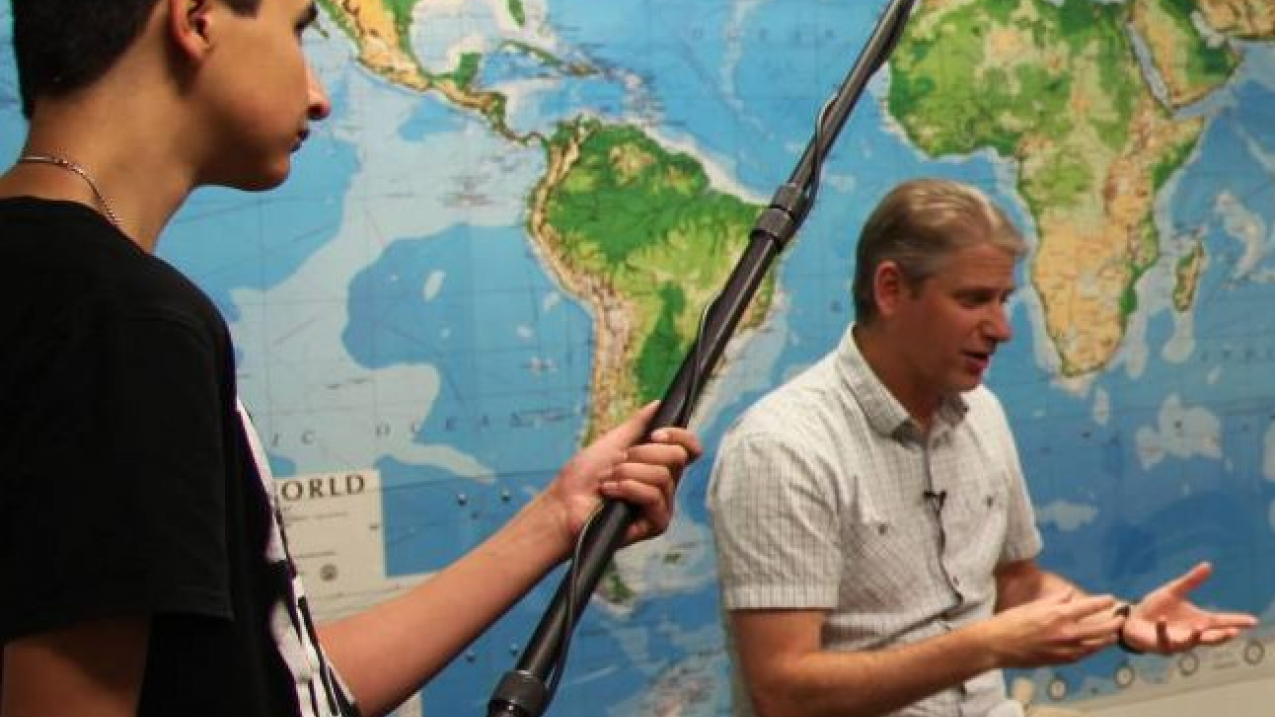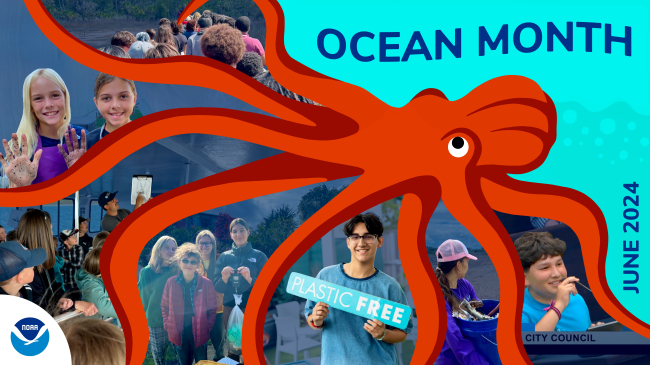A group of teens headed down to fish at a shady stream in the American Southwest. But in addition to rods and tackle, they also carried professional-grade video cameras, microphones, and recording equipment. Erik Morales, a student from Gadsden High School in Anthony, New Mexico, shared his story with the camera: “I used to go fishing all the time,” he said. “But things have changed over the past decade…there isn’t enough water to sustain, kind of, the amount of fish we used to catch.”

A Lens on Climate Change team films a segment on water in the West featuring an interview with Jeff Lukas, a scientist from the Cooperative Institute for Research in Environmental Sciences (CIRES). (Image credit: Katie Weeman/CIRES)




